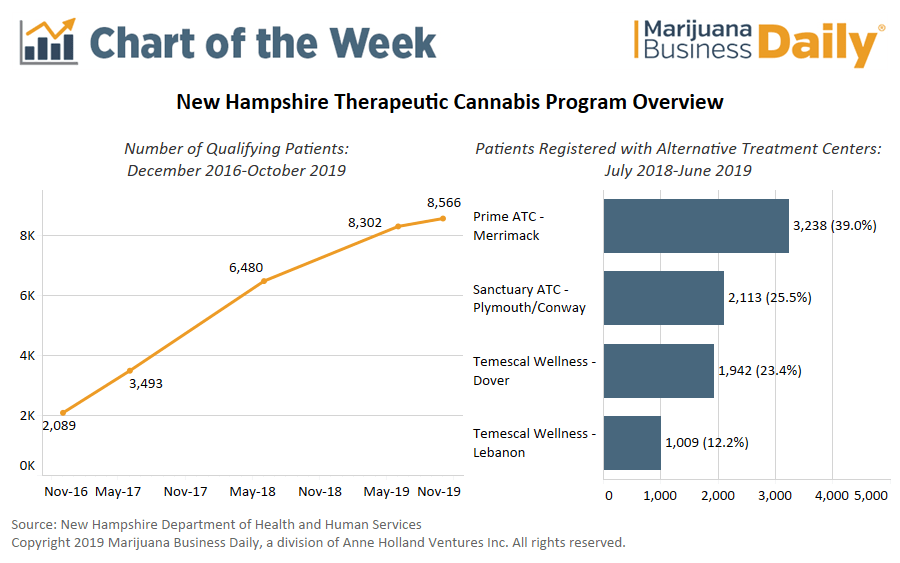A new law in New Hampshire aimed at increasing the number of dispensaries allowed may improve the financial performance of the state’s existing licensed medical cannabis businesses.
The state’s MMJ program – which consists of four total licenses held by three companies – has posted steady growth over the past year and a half.
Patient counts increased 32% between June 2018 and October 2019, reaching 8,566, the New Hampshire Department of Health and Human Services (DHHS) reported in its annual update of the state’s Therapeutic Cannabis Program.
Those counts could rise even higher with the enactment of House Bill 335, which took effect in September.
The law authorized DHHS to allow New Hampshire’s licensed MMJ businesses, known as alternative treatment centers (ATC), to open a second “satellite” dispensary in each of the state’s four designated regions.
The new law expands upon Senate Bill 388, passed in 2018, which allowed for two satellite dispensaries in the more rural regions of the state.
New Hampshire’s vertically integrated ATCs have historically operated at a financial loss, but they could see a boost in sales by making it easier for patients to secure medical marijuana by reducing the amount of time they must travel.
In determining where to locate the additional dispensaries, DHHS defined a “travel burden” as:
- One-way travel distance in excess of 25 miles.
- Or, one-way travel time exceeding 30 minutes.
In some regions, more than 20% of patients fall into both categories – but these travel burdens will be reduced or eliminated by the additional dispensaries.
New Hampshire’s licensed MMJ businesses include Prime ATC, managed by Acreage Holdings; multistate operator Temescal Wellness, which holds two licenses; and Sanctuary ATC, which opened its first satellite location in July under the provisions of SB 388.
New Hampshire now has five dispensaries in operation out of the total eight allowed.
The state’s medical marijuana program requires patients to register with – and make purchases from – only one ATC.
From July 1, 2018, to June 30, 2019:
- Prime ATC counted 40% of the state’s qualifying patients on its registry.
- Temescal Wellness served 36% of the state’s qualifying patients.
- Sanctuary ATC counted 26% of the state’s patients in its registry.
Maggie Cowee can be reached at maggiec@mjbizdaily.com





